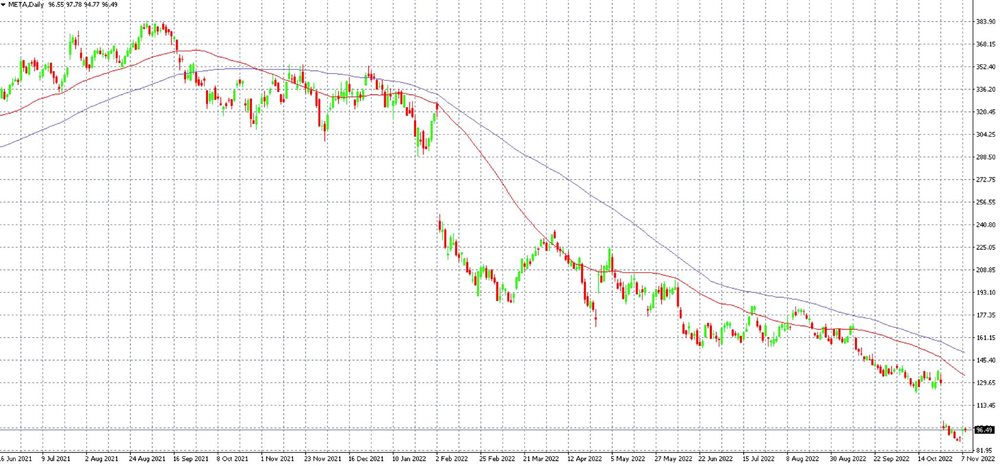A money-eating monster called Metaverse
When speaking about companies that are “money-eating monsters”, Meta - the parent company of Facebook, Instagram, or WhatsApp instantly comes into mind. The company's woes continue unabated, and it has even written off nearly 75% of its capitalization as of the end of 2021. Such an extreme decline in the company's value is something quite unique. Facebook founder Mark Zuckerberg himself has even gone down in history as the man who lost the most money ever. The cause can be sought on multiple levels, but we will focus on the company's third-quarter results.
Meta has been exemplary in year-on-year revenue growth but has broken that trend twice this year. 3Q revenue was down 4.5% year-over-year, mainly due to a decline in ad interest. The average price per ad fell 18% year-on-year, but Alphabet and Snapchat also reported similar trends. However, the aforementioned companies do not have a burden called Metaverse chained to their feet.
The latter is proving to be, quite literally, a money-eating monster. Meta has already invested over USD 30 billion in it and the investment is expected to grow next year. Mark Zuckerberg is begging the markets for leniency and is still convinced that Metaverse is the next big thing. However, investors' patience with Metaverse is already minimal, and it shows in the stock's fall (see chart 1).

Meta shares in the MT4 platform on the D1 timeframe along with the 50 and 100-day moving averages
Relatively positive was at least the data referring to daily active users. This reached 1.98 billion. Interest in Instagram has also reached its peak levels, exceeding 2 billion daily active users for the first time in history. However, this was not enough to soften investors. The current quarter is likely to be disappointing again, with a year-on-year decline in revenue expected again. Like others, Meta is also suffering from the strong US dollar, which is knocking down revenues from abroad. We cannot say that Meta is a good buying opportunity at the moment, as it is more reminiscent of General Electric - formerly one of the world's largest companies that are known for gradually falling to its knees thanks to a series of very unfortunate decisions.
Also this week, Meta announced widespread layoffs (around 13% of its workforce), which were received rather positively by the market. The layoffs should also affect employees working at Metaverse, so costs could come down. The question that is still up in the air at the moment is how financially challenging it will be to compensate the redundant workers.